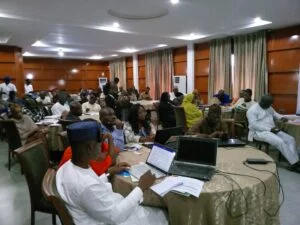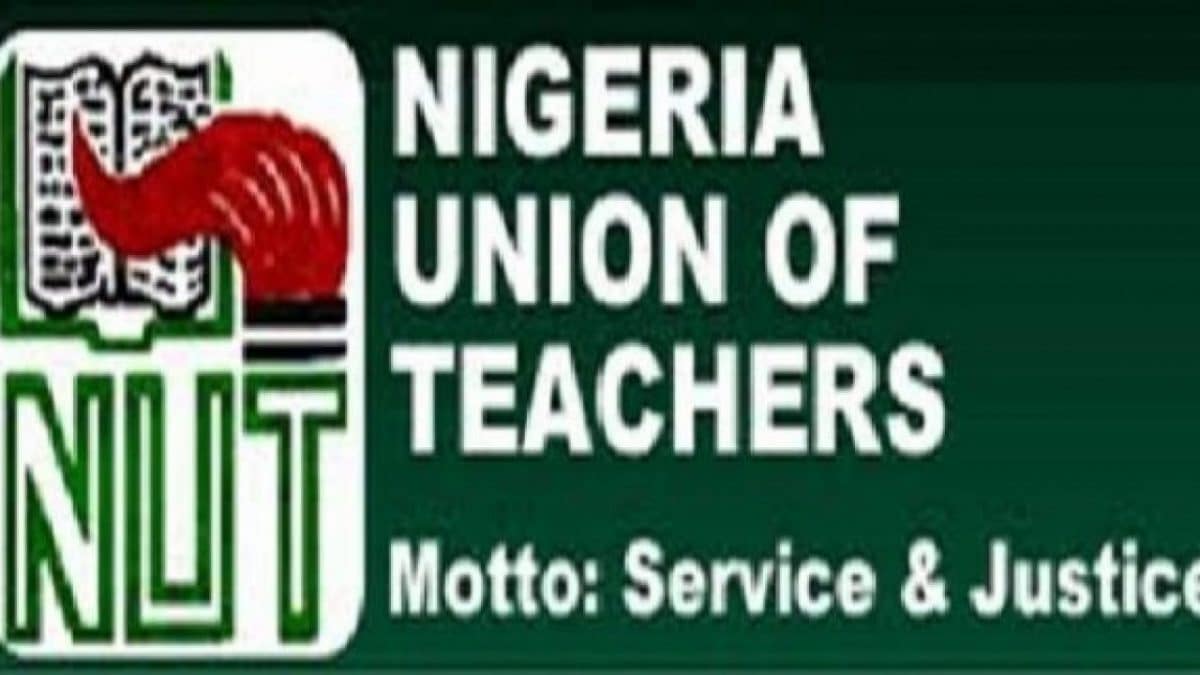Education
School Curriculum: Stakeholders brainstorm on review, implementation

Stakeholders in education sector on Tuesday brainstormed on opinions/inputs suggested in the design of the architectural framework for the review of the Senior Secondary Education Curriculum (SSEC) in Nigeria.
The stakeholders met at a ‘Workshop for the Validation of the Senior Secondary Education Curriculum Review Framework and Guidelines’, organised by the Nigerians Educational Research and Development Council (NERDC).
The aim is to bring ideas to make Nigerian system of education to be part of the emerging innovations, life-long learning system which could be infused into the curriculum to place the country among the best nation of the world.
Speaking, Prof.
Ismail Junaidu, Executive Secretary NERDC, said the workshop was another stage in NERDC’s efforts to democratise the curriculum development process, anchored on the philosophy of having all stakeholders who had contributed to school programmes.“This validation workshop is expected to take a holistic look at the guidelines with the intent of providing technically sound suggestions for improvement and adoption, afterwards.
“Specifically in this meeting, you will be expected to bring to bare your experiences and expertise on issues relating to the proposed curriculum structure and the implementation framework, ” he said.
According to Junaidu, NERDC in previous national dialogues had collated and harmonised the views, inputs and suggestions of stakeholders including students to come up with the guidelines and framework for the review of the SSEC.
He said the process had provided a clear roadmap for the review of the SSEC, adding that the development of the guidelines followed through several stages which involved curriculum experts, teachers and policy makers.
Also, Dr Iyela Ajayi, Executive Secretary, National Senior Secondary Education Commission, commended the NERDC management for the workshop, saying that it came at the right time since curriculum was subject to review periodically to meet best global practice.
Ajayi, however noted that having an excellent curriculum was one thing, but its implementation was remained the most important focus.
“Therefore, as we embark on the task of reviewing the curriculum periodically, we must also focus on the important issue of curriculum implementation. “
In her contributions, Mrs Kadija Liman, Director Educational Management, Ministry of Education, expressed joy over the move by the NERDC to ensure that the nation’s school curriculum was restructured to meet the present global standards.
Liman said NERDC’s action on new curriculum had taken away some of the burden on the curriculum from the ministry, adding that the ministry would do all it could to ensure its implementation.
Mr David Akoji, Director Special Duties/States Operations, National Orientation Agency in his contributions placed emphasis on inclusion of value re-orientation in the curriculum to inculcate value system in the lives of the younger generation.
Akoji, however, suggested the need for Nigerian government to emulate other countries of the world with best education practices which had yielded positive results in the lives of their younger generation.
The News Agency of Nigeria reports that the workshop drew the present of representatives from ICPC, CBN, UNICEF, FIRS, Professors from different fields and other critical stakeholders in education.
Education
UNICAL VC Promises to Resolve Dentistry Students’ Crisis

From Ene Asuquo, Calabar
The Vice Chancellor of the University of Calabar, Prof. Florence Obi has promised that she would do everything humanly possible to ensure that the ongoing crisis in the institution’s Department of Dentistry, is resolved.
Prof.
Obi made the promise in Calabar during a press briefing, stressing that she will resolve the crisis before leaving office.She explained that the problem predates her administration, and pledged to intensify efforts to rectify the crisis.
She added that the crisis was as a result of the Medical and Dental Council of Nigeria (MDCN)’s refusal to induct 2016 Dentistry students of the institution.She also debunked claims circulating on social media that the institution’s Dentistry programme has lost its accreditation, describing the reports as “misinformation and distortion of facts,” clarifying that the programme remains fully accredited and no students have been directed to transfer to other universities.
“At no point did the University ask Dentistry students to seek transfers to other institutions, nor were they advised to ‘go and learn a trade’ as falsely alleged online,” the VC stated.
“I will feel very bad if I leave without solving this problem and the students are left hanging without knowing their fate. I won’t be fulfilled,” she said.
She reaffirmed the University’s commitment to ensuring all Dentistry students graduate and are duly licensed as dental surgeons.
She noted that the Dentistry programme commenced in the 2013/2014 academic session, and in November 2019, the University secured pre-clinical accreditation from the MDCN and full clinical accreditation was subsequently granted in December 2022.
The VC added that the university’s synergy and partnership with the Minister of Education and the Tertiary Education Trust Fund (TETFund) to upgrade its facilities.
“All we asked for is time to engage with other institutions, update the Medical and Dental Council of Nigeria (MDCN), and follow through on due processes,” she noted.
Speaking further, Obi said that some of the affected students demanded to be transferred to the Department of Medicine and Surgery but said it was not the solution as the department was already saturated.
She urged the affected students to remain calm, noting that the university was doing everything possible to resolve the issues before the end of her tenure.
Education
NUT Reaffirms Commitment to Teachers’ Professional Development in Kwara

From Abdullahi Abubakar, Ilorin
The Nigeria Union of Teachers (NUT), Kwara State Wing has restated its commitment to strengthening the professional growth of teachers across the State, to enhance the quality of education delivered in public schools. Speaking at the opening of a three-day capacity-building workshop in Ilorin, the State Chairman of the Union, Comrade Yusuf Wahab Agboola, noted that continuous training of teachers remains a vital component of educational reform and improved classroom delivery.
The training, organised in collaboration with the NUT National Secretariat, is targeted at selected teachers and focuses on the “Study Circle Conveners’ Model”—a grassroots strategy for enhancing peer-to-peer learning and participatory leadership within the education sector.
Comrade Agboola explained that the workshop aims to equip teachers with practical skills in collaborative learning, peer engagement, and innovative teaching practices. He expressed optimism that the training would promote professional bonding among teachers and foster collective solutions to challenges facing the education sector.Also speaking at the event, the National Coordinator of the NUT Study Circle Project, Comrade Solomon Igbelowowa, traced the initiative’s roots to 1985 when it was introduced in Nigeria by the Swedish Teachers Association, having recorded success in Sweden and other parts of the world. He commended the Nigerian Union of Teachers for sustaining the project over the years and urged participants to engage fully and make the most of the training opportunity.
The workshop was officially declared open by the National President of the NUT, Audu Amba, who was represented by the 3rd National Vice President, Bashir Oyewo.
He encouraged teachers to approach the sessions with dedication and punctuality.
Education
JAMB Sets 150 Cut-off Mark for University Admissions

By Tony Obiechina Abuja
The Joint Admissions and Matriculation Board (JAMB) has fixed 150 as the minimum cut-off mark for admission into Nigerian universities for the 2025/2026 academic session.
The decision was reached on Tuesday during the 2025 Policy Meeting on Admissions, held at the Bola Ahmed Tinubu International Conference Centre in Abuja, with stakeholders from various tertiary institutions in attendance.
According to JAMB, 140 was approved as the minimum score for colleges of nursing sciences, while polytechnics, colleges of education, and colleges of agriculture will admit candidates with a minimum score of 100.
“The minimum admissible scores for admissions for the next academic session have been fixed at 150 for universities, 100 for polytechnics, 100 for colleges of education, and 140 for colleges of nursing sciences by the stakeholders (Heads of Tertiary Institutions),” JAMB announced via its official X account.



















